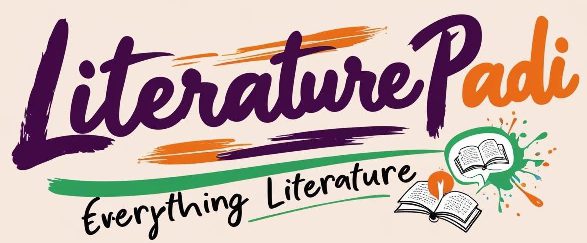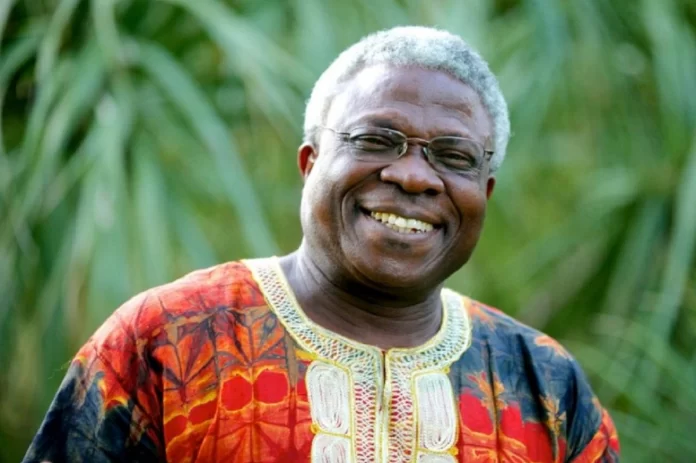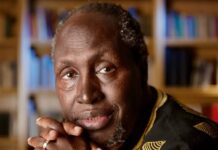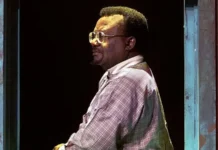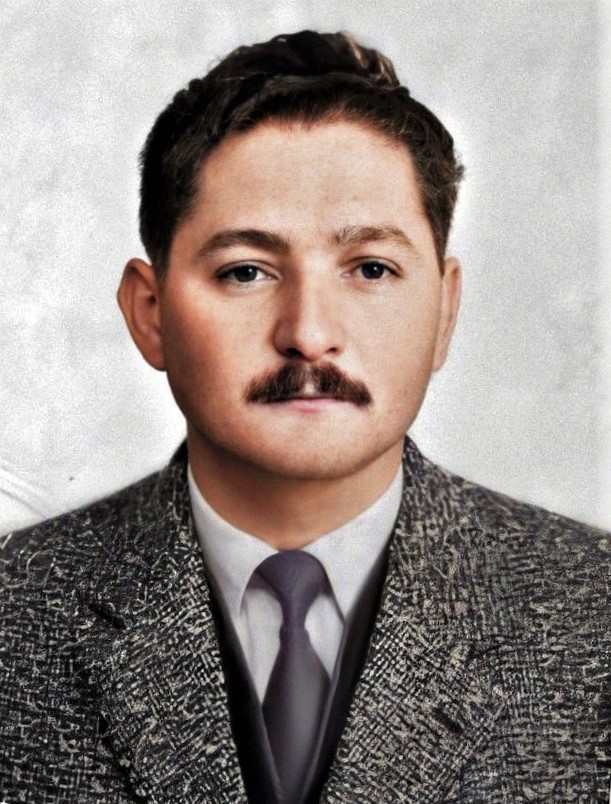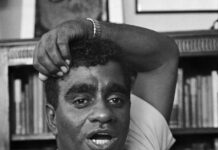📢 Follow our WhatsApp Channel for the latest literary updates!
Niyi Osundare is a distinguished Nigerian poet, dramatist, and literary critic whose contributions to African literature have garnered international acclaim. His works are renowned for their socio-political engagement, deep connection to the natural world, and use of accessible language to address complex themes.
Overview
| Born | 1947 in Ikere-Ekiti, Southwestern Nigeria |
| Occupation | Poet, Dramatist, Literary Critic, Columnist, University Lecturer |
| Genres | Poetry, Drama, Literary Criticism |
| Nationality | Nigerian |
| Education | BA in English, University of Ibadan; MA, University of Leeds; PhD, York University, Canada |
| Notable Works | Songs of the Marketplace (1983), Village Voices (1984), The Eye of the Earth (1986), Moonsongs (1988), Waiting Laughters (1990), Songs of the Season (1999), The Word Is an Egg (2000), Pages from the Book of the Sun (2002), etc. |
| Key Themes | Nature, Social justice, Critique of political oppression, Environmental conservation, Celebration of African traditions, Rural-urban tensions |
| Career Highlights | Columnist for Newswatch and other Nigerian newspapers; “Songs of the Season” series in Sunday Tribune (1985); Published more than 12 volumes of poetry, plus poetry for children |
| Anthologies Featuring His Work | The African Writers’ Handbook (1999), Ibadan Mesiogo (2001), Essays on African Literature in Honour of Oyin Ogunba (2003), etc. |
| Notable Awards | Commonwealth Poetry Prize (for The Eye of the Earth), Noma Award (for Waiting Laughters), Fonlon-Nichols Award, Tchicaya U Tam’si Prize |
Early Life and Cultural Influences
Niyi Osundare was born in 1947 in Ikere-Ekiti, a rural community in Nigeria. His father was a farmer, and his mother was a trader. From a young age, he was exposed to the oral traditions of storytelling, proverbs, folktales, and Yoruba chants, which would later influence his poetic style. These traditions played a critical role in shaping his worldview, as they emphasised communal life, respect for nature, and the importance of history and heritage.
In Yoruba culture, art, music, and poetry are often intertwined, and Niyi Osundare grew up listening to the rhythms of traditional praise-singers, whose performances were imbued with both social and moral lessons. This early exposure to performance poetry planted the seeds for his later work.
Additionally, the economic disparities and political instability that followed Nigeria’s independence in 1960 created a backdrop for his early social consciousness. Osundare had witnessed the challenges faced by ordinary Nigerians under corrupt leadership and increasing urbanisation, themes that would later become central to his poetry.
Educational Background and Literary Career
Niyi Osundare’s academic journey began at the University of Ibadan, where he earned his BA in English. He continued his studies abroad, obtaining an MA in English from the University of Leeds and a PhD from York University in Canada. His time in England and Canada exposed him to Western literary traditions and critical theory, which he seamlessly integrated into his deep knowledge of African oral traditions and indigenous aesthetics.
At Ibadan, Niyi Osundare was influenced by the works of prominent African writers like Chinua Achebe and Wole Soyinka, as well as Western poets like William Wordsworth and T.S. Eliot. Consequently, his poetry is marked by a balance between traditional Yoruba motifs and Western literary techniques.
In addition to his academic achievements, Niyi Osundare became a passionate advocate for the democratisation of poetry. He sought to make poetry more accessible to the average Nigerian. He distanced himself from the elitist tendencies of some of his contemporaries. He demonstrated, in his writings for example, that poetry should serve the people, and address their daily struggles and aspirations in a language they could understand.
His desire to bring poetry into the public sphere was evident in his regular contributions to Nigerian newspapers, particularly in his “Songs of the Season” series, which began appearing in the Sunday Tribune in 1985. This series, among many others, allowed him to engage with current events and social issues, and give voice to the concerns of ordinary Nigerians.
Major Works and Key Themes
Osundare’s poetry reflects a deep engagement with both the social realities of Nigeria and the natural world. His first poetry collection, Songs of the Marketplace (1983), established him as a socially conscious poet with a deep concern for the poor and marginalized. In this collection, Osundare critiques the growing economic disparities in Nigerian society, contrasting images of wealth and poverty. The “marketplace” becomes a metaphor for the intersection of human lives, commerce, and survival. Despite the bleak portrayal of social decay, the collection ends on a note of hope, with the poet envisioning a more harmonious social order.
In Village Voices (1984), Niyi Osundare returns to the rural landscape of his childhood, celebrating the traditions, songs, and communal values of village life. The collection serves as both a nostalgic homage to the rural past and a critique of the encroaching forces of modernity and capitalism that threaten to erode these values. His use of local songs, myths, and panegyric verses showcases his commitment to preserving Yoruba oral traditions while also adapting them to a written form.
The Eye of the Earth (1986), which won the Commonwealth Poetry Prize, is one of Niyi Osundare’s most acclaimed works. In this collection, the poet mourns the environmental degradation caused by capitalist exploitation and the shift from agrarian to industrial production. The poems reflect his ecological concerns and his deep reverence for nature, drawing on Yoruba cosmology, in which the earth is considered sacred. He uses the poems in this collection to critique the environmental destruction wrought by human greed, with particular emphasis on the interconnectedness of all living things.
Waiting Laughters (1990) is another significant work by Niyi Osundare that focuses on the socio-political challenges facing Africa. In this collection, Niyi Osundare addresses the themes of oppression, hope, and resilience. The poems therein reflect on the political turmoil and corruption in the continent. The title itself is indicative of a sense of deferred joy and delayed liberation, as the people continue to wait for a better future amidst the struggles of the present. This poetry collection won the 1989 ANA/Cadbury Prize for Poetry and the Noma Award for Publishing in Africa in 1991.
Impact on Local and International Audiences
Niyi Osundare’s work has had a profound impact on both local and international audiences. In Nigeria, his poetry resonates with readers across different social strata, thanks to its accessibility and relevance to the struggles of everyday life. His use of Yoruba language and imagery, combined with his engagement with contemporary issues, has endeared him to readers who see in his work a reflection of their own experiences.
Internationally, Osundare is recognized as one of Africa’s most significant literary voices. His work has been translated into multiple languages (French, Dutch, Spanish, Japanese, Korean, etc.), and his contributions to African literature have been celebrated through numerous awards and honors.
In addition to winning the Commonwealth Poetry Prize and the Noma Award, he has received the Fonlon-Nichols Award for “excellence in literary creativity combined with significant contributions to human rights in Africa” and the Tchicaya U Tam’si Prize for African Poetry.
Despite his many successes, Niyi Osundare has faced challenges throughout his career, particularly during Nigeria’s military regimes in the 1980s and 1990s. His outspoken criticism of corruption and oppression in both his poetry and public commentary often put him at odds with the authorities, and he was subjected to censorship and surveillance.
In 2005, he survived Hurricane Katrina in New Orleans, where he had been teaching at the University of New Orleans.
Conclusion
Niyi Osundare’s contributions to African literature are immense. As a poet, critic, and public intellectual, he has helped redefine the role of the African writer. His poetry not only preserves and celebrates African oral traditions but also serves as a voice for the marginalized and oppressed.
A List of Books by Niyi Osundare
| Title | Study Guides |
|---|---|
| Songs from the Marketplace (1983) | Available Upon Request |
| Village Voices (1984) | Available Upon Request |
| The Eye of the Earth (1986) | Not Available |
| A Nib in the Pond (1986) | Not Available |
| Moonsongs (1988) | Available Upon Request |
| Waiting Laughters (1990) | Available Upon Request |
| Niyi Osundare: Selected Poems (1992) | Not Available |
| Midlife (1993) | Not Available |
| Seize the Day and Other Poems (1995) | Not Available |
| Songs of the Season (1999) | Not Available |
| Thread in the Loom: Essays on African Literature and Culture (2002) | Not Applicable |
| The Word is an Egg (2002) | Not Available |
| Pages from the Book of the Sun: New and Selected Poems (2002) | Not Available |
| The State Visit (2002) | Not Available |
| Early Birds: Poems for Junior Secondary, Book One, Book Two, Book Three (2004) | Not Available |
| Two Plays (2005) | Not Available |
| Tender Moments: Love Poems (2006) | Not Available |
| City Without People: The Katrina Poems (2011) | Not Available |
| Random Blues (2011) | Not Available |
| Days before Rodeo (2014) | Not Available |
| Only If the Road Could Talk (2017) | Not Available |
| Snapsongs: Homegroans and Foreignflares (2021) | Not Available |
| Green: Sighs of Our Ailing Planet (2022) | Not Available |
Join Our Social Media Channels:
- WhatsApp: Literature PADI
- Telegram: Literature PADI
- YouTube: @literaturepadi
- Facebook: Literature PADI
